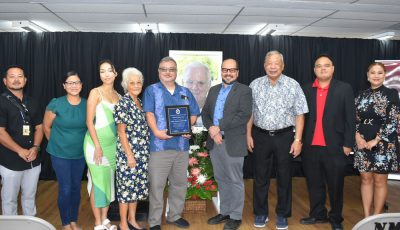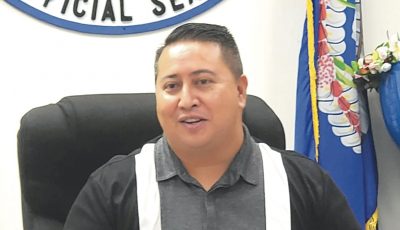How the ‘Build Back Better’ plan can benefit US territories
Editor’s note: The following is the author’s written testimony before the U.S. House Committee on Natural Resources’ oversight hearing on “How the Biden Administration’s Build Back Better plan can benefit the U.S. territories.” It is being published as a series due to its length. The first part was published on March 26, 2021; the second on March 29, 2021; the third, on March 30, 2021; the fourth, on March 31, 2021.
Last of a series
One program that fit this design was a significant component of the CNMI’s Covenant agreement with the United States. Section 701 of this agreement states that the United States government will “assist the government of the Northern Mariana Islands in its efforts to achieve a progressively higher standard of living for its people as part of the American economic community and to develop the economic resources needed to meet the financial responsibilities of local self-government.”
To fulfill this commitment the United States put forward an effort to provide Capital Improvement Project funds toward the creation of a modern infrastructure that would support the advancement of the CNMI people. In administering this program, the Office of Insular Affairs has aided the Commonwealth in phenomenal advancements over the course of our recent history, but the structure of the program is in dire need of review and modernization to keep pace with the increased costs of infrastructure.
Funding provided to this program has been locked at $27.72 million since its inception for the CNMI in 1978 under Section 701 of U.S. Public Law 92-241 and continued at this level when it was modified to include Guam, American Samoa, and the U.S. Virgin Islands under U.S. Public Law 104-134. The CNMI once again urges the review of the CIP Grants Program to allow for an increase in the budgeted amount that adjusts for inflationary costs and current infrastructure needs of the U.S. territories.
Federal funding is but one crucial avenue for financing the infrastructure priorities of the CNMI. For communities around the United States, access to the capital markets provides access to crucial financing to support large-scale capital investments that spur economic growth. The CNMI has not issued any new debt since fiscal year 2007, allowing our public debt to decrease from 16 to 8% of GDP. However, despite low indebtedness and a strong track record of repayment, access to the capital markets is limited by our size, economic volatility, and prevalence of devastating natural disasters. Adjusted and consistent schedules for CIP allotments have the potential for being adequate security for public debt that can support more rapid advancements of our islands’ infrastructure in coordination with the goals and objectives of OIA and the federal government.
The CNMI has made great strides in the overall improvement of its infrastructure over a relatively short period of time. That said, there is still a significant amount of work to be done to bring our infrastructure into the 21st century, from accessibility to potable water to a viable public transportation system and less reliance on unsustainable and non-renewable energy sources. The people of the CNMI, hardworking folks who are used to struggle and hardship, are also deserving of a modern infrastructure that supports economic development, a better quality of life, safety and health, and consideration or the health of the environment. The “Build Back Better” initiative is an opportunity to address many of the longstanding concerns of the CNMI that are specific to our ability to better manage our economic development and make a real investment in the infrastructure of the CNMI and the lives of its people.
Thank you for the opportunity to provide my written testimony on the “Build Back Better” infrastructure initiative. I am in full support of the initiative and look forward to working closely with the administration of President Biden to see this landmark initiative fully implemented.
Ralph DLG Torres (Special to the Saipan Tribune)
Ralph DLG Torres is governor of the Commonwealth of the Northern Mariana Islands.



























